8 Tips for Brands on Germany’s Due Diligence Act

The passing of Germany’s new corporate supply chain due diligence law has raised many business questions and concerns. The law requires companies to take proactive measures to prevent human rights violations and environmental damage in their global supply chains, and non-compliance can result in significant fines and reputational damage. As a business owner or manager, it is essential to understand the law’s requirements and take the necessary steps to prepare for compliance. How can companies assess the risks in their supply chains and develop a compliance plan? What steps can be taken to engage with suppliers and monitor progress?
We’ve compiled a list of practical tips for businesses for Germany’s Due Diligence Act:
1. Develop a due diligence process: Establishing a comprehensive due diligence approach will help you address human rights and environmental risks in your supply chain. As per the UN Guiding Principles on Business and Human Rights, the due diligence process consists of identifying and assessing actual or potential adverse human rights impacts, integrating findings and taking appropriate action to address the impacts, tracking the effectiveness of measures implemented, and communicating how risks are being addressed. This system should involve many departments within your business, such as risk, procurements, human resources, ESG, audit and communication. The Human Rights Due Diligence process represents an important step for companies to ensure their supply chains are responsibly managed and aligned with sustainability principles and ethical behaviour.
2. Mapping and risk assessment: A crucial step for preparing for the Due Diligence Act is to assess risks. To understand the risks, it is essential to get a full picture of your supply chain. Supply chain mapping involves engaging with your suppliers to gather information on who they are, where they operate and who they work with. To prepare for Germany’s Due Diligence Act, companies should identify key suppliers and stakeholders and assess country-level, sector-level and commodity-level risks as well as the exposure to specific risks such as modern slavery. A comprehensive risk assessment should set up monitoring and reporting systems to address potential and actual adverse impacts on human rights and the environment. You can use tools such as the Slavery & Trafficking Risk Template (STRT) or the Anti-Slavery Scorecard to help you assess modern slavery risks in your supply chain.
3. Establish a complaints procedure: To establish a grievance mechanism, you should identify and communicate clear channels for employees and stakeholders to report concerns or complaints related to environmental and human rights violations. It is important to ensure that these channels are accessible, confidential and responsive. Additionally, companies should appoint a dedicated team to handle and investigate complaints and implement measures to protect whistle-blowers from retaliation. Regular training and awareness-raising for employees, suppliers and other relevant stakeholders are also crucial to ensure the success of the grievance mechanism.
4. Engage with suppliers: Engaging with your suppliers is essential in ensuring they know the Due Diligence Act and the requirements for compliance. You should communicate the expectations for compliance to your suppliers and provide them with the necessary resources and support to meet those expectations. The Mekong Club is developing a supplier toolkit to support brands’ supplier engagements. To stay up to date on the tool launch and to receive regular modern slavery updates, subscribe to our email newsletter.
5. Train employees: Training your employees on the Due Diligence Act and your company’s due diligence plan is crucial in ensuring that they understand the requirements and can implement the necessary measures in their daily work. This can include training on human rights and environmental issues and how to identify and address risks in your supply chain. Mekong Club members have access to our e-Learning platform, which provides brands and their suppliers with educational videos on modern slavery, reading resources, and quizzes in multiple languages to test knowledge.
6. Monitor progress: Regular monitoring of your supply chain is essential in ensuring that you are meeting the requirements of the Due Diligence Act and making progress towards a more responsible and ethical supply chain. This may include regular audits, inspections and assessments to assess compliance and identify areas for improvement. Solutions such as diginexApprise are a great way to overview your supply chain comprehensively.
7. Report progress: The Due Diligence Act requires companies to publicly report on their progress in addressing the risks in their supply chains. This may include annual reports or sustainability reports that outline the measures that have been taken to prevent human rights violations and environmental damage. When a new member joins the Mekong Club, we run a baseline assessment through a methodology we developed over the years. The assessment enables us to better understand how our members are doing in their anti-slavery efforts and the areas of improvement we can work together to customise an anti-slavery roadmap strategy that aligns with companies in their anti-slavery efforts.
Continuously improve: Finally, it is important to constantly improve and make changes as needed to ensure that you meet the Due Diligence Act requirements and that your supply chain is responsible and ethical. This may include regularly reviewing and updating your due diligence plan, engaging with stakeholders and making necessary changes to your supply chain. As a nonprofit, we often get asked how NGOs and companies can work together. The private sector and NGOs sometimes speak different languages and may even have hostility towards each other. However, we believe addressing modern slavery will ultimately require partnerships between these two groups, as NGOs have the data and information the private sector needs to address modern slavery.
In conclusion, the Due Diligence Act is an important step forward in holding companies accountable for their actions and ensuring they are responsible and ethical in their business practices. As an organisation, it is crucial to understand the new law’s requirements and take the necessary steps to prepare for compliance.
Author: Nolan Clack

